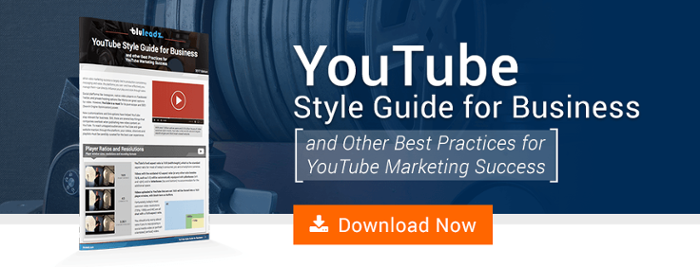With Facebook videos, there's a bit of a problem that's either bugged you forever or flown entirely under your nose. The videos you upload directly to Facebook get a ridiculous amount of views compared to those shared on Facebook from YouTube. We're talking incrementally more views.
That's not all; one look at your video analytics and you can see that engagement is also much higher on videos uploaded with Facebook's native player than those shared from a 3rd party video site like YouTube.
Why is that? Does Facebook prioritize its own videos, or...
Is it a Video Conspiracy?
So, what's the big deal? Why do videos uploaded to Facebook get so many more views than those uploaded and shared from YouTube—as much as 10x more views?
Facebook isn't punishing 3rd party video content (videos hosted on another platform) and prioritizing its own player; rather, it's using its native player and autoplay functionality to incentivize uploaders.
As for the view count itself? YouTube counts a video as "viewed" when a user makes it through roughly 30 seconds of a video, whereas Facebook considers a video as "viewed" after a hard 3 seconds. Pair that with muted autoplay that the native player has over 3rd party sites, and you have your answer.
Every time you scroll past a video on Facebook and it plays for 3 seconds, unclicked or clicked, it's counted as a view.
On Facebook, the difference between what the viewer stats tell you brings in the matter of intent. Plays to your 3rd party (YouTube) video are intentional, while many of the plays using a native player will likely be attributed to a user scrolling by and taking a couple seconds to read the description while your video autoplays.
So What's the Best Strategy?
There are pros and cons to using Facebook's native player and a 3rd party site like YouTube (that is, as far as Facebook interaction goes. You should have your content on YouTube regardless, and a private hosting option if you're a business owner or marketer).
Facebook Native Player
Pros:
- Facebook's autoplay feature is an automatic ice-breaker. Whether it's videos of pugs in Game of Thrones costumes or a serious B2B effort, it'll play on the timeline as long as you stay on the video.
- It's fast and efficient. Fast in terms of its play time, efficient in terms of streamlined video pages and ease of use. It looks a lot like YouTube. It isn't YouTube. However, it's still valuable. Autoplay works two ways: to some it's annoying, while to others it's a hook. It really depends on the content produced and the end goal.
However, Cons:
- Autoplay is also a weakness of the player, in the sense that you won't be able to tell how many of your video views are true views without going into the player analytics for each individual video. It's a bit of a clumsy system to see true audience engagement, and with no way to "define" a custom view time, the only way to see how users are really interacting with your natively uploaded videos is to select custom options in each video. It's cumbersome.
3rd Party Player (YouTube)
Pros:
- Everything is in one place. On a 3rd-party site like YouTube, your video can be hosted essentially anywhere. You'll be able to track views, embeds and interactions all under one roof.
- YouTube has replaced traditional annotations with cards and end screens. These are useful conversion elements for channel owners, and really convenient for viewers. Although they're new features and their success depends on the company using them, we can see a bright future with these features as time goes on.
- In 2006, Google bought YouTube for a cute $1.65 billion, which is pennies in today's app market. Partly due to that, sheer audience volume proves YouTube's worth. It's really social media meets multi-media. Facebook has autoplays and intuitive player windows, while YouTube has scope. They're both incredibly powerful, flawed and useful for business.
Cons:
- YouTube really doesn't get along with others. It doesn't work as intuitively on Facebook as Facebook's native player, and certainly doesn't integrate with most marketing automation CRMs (Note: while Facebook integrates, videos typically do not). It's both an essential and entirely separate platform for marketers. Hyper useful, but also not at all attached. That means separate uploads, analytics and sharing.
Facebook and YouTube are deep in the trenches. Facebook videos get more engagement from autoplay, while Google-owned YouTube is a video marketer's SEO dream. In the end, just try to balance both in your marketing strategy. They each serve different purposes and have their own strengths.


Alex Dunn
Alex is a University of South Florida mass communications graduate and Video/Media Specialist at Bluleadz. He is a big movie nerd, loves (possibly dangerous) concerts and enjoys taunting co-workers with a camera. He's probably seen The Royal Tenenbaums 14 times by now.